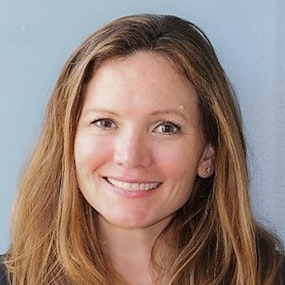ROBERT JOHNSON:
This is the award-winning Public Health Review Morning Edition for Friday, January 5, 2024. I'm Robert Johnson. Now, today's news from the Association of State and Territorial Health Officials.
MARCUS PLESCIA:
The rates may be worse than we think, and they may get worse as we go forward.
JOHNSON:
ASTHO Chief Medical Officer Dr. Marcus Plescia tracking reports of respiratory illness across the U.S. expecting they could worsen.
PLESCIA:
Most of the rates that we're looking at are from before Christmas because we didn't get an update at the end of last week. CDC did offer to come onto our SHO call, and they will be on the call to give us an update on January 9. So, that'll be an important one—to just get a sense of where things are.
JOHNSON:
Plescia worries about students going back to school after the holidays, and what that could mean for new cases of COVID, the flu, and RSV.
PLESCIA:
That's another factor that may continue to push up infectivity, you know, many of them got sick when they were at home and now, they may take it back to school and pass it on to other children who then take that back to their home. So, I don't know that the vacation surge is necessarily over and I think we need to be prepared for that.
JOHNSON:
Plescia wants ASTHO members to continue their conversations with local providers to support them where needed should cases climb this month.
PLESCIA:
The big concern here is that healthcare systems will get overwhelmed and we'll be in a situation where they don't not just that they don't have enough beds for people who have infectious diseases, but they don't have beds for people who have other health issues.
JOHNSON:
Plescia has written a blog article on this topic. There's a link in the show notes.
The holidays are over but how are members of Congress feeling as they get back to work next week? ASTHO's Carolyn Mullen considers the question in her first View from Washington, D.C. report of the new year. Carolyn Mullen, Happy New Year. It's good to see you here in 2024.
CAROLYN MULLEN:
Happy New Year. It's going to be an exciting year here in the advocacy world.
JOHNSON:
Well, we know that because anytime Congress is involved, it's always fun. The question is the holidays are behind us. Did any of that spirit that goodwill carry over? Do you think we're going to see that here in January and February as lawmakers get back to work?
MULLEN:
Well, first and foremost, I'm not sure the spirit has invoked any bipartisanship amongst our members of Congress, but there is an impending and looming deadline coming up, and that is federal funding expires on January 19 for WIC and FDA, and then it expires again on February 2 for NIH, CDC, HERSA, and SAMSA programs. So, Congress will be working together to develop a deal to provide funding for the federal government, and there are those two deadlines that they have on their plate.
JOHNSON:
It seems like we just got over the whole deadline thing and now here we have more. What is ASTHO doing to get ready for that? How are you preparing your members? How are you preparing the staff? What's going on there?
MULLEN:
So, we are uniting with the Coalition for Health Funding, which runs our larger coalition called Non-defense Discretionary Programs United, so NDD United and we signed on to a letter urging Congress to increase funding for non-defense discretionary programs, and to not allow catastrophic cuts to happen to these programs in any deal that happens in the next couple of weeks. Moreover, Senator Schumer was saying there have been some positive developments in Congress, and they are working on a top-line funding level. So, the letter that we signed on to was really timely and relevant to hopefully help spur negotiations so that we say that big pot of money, which then filters down to fund public health programs.
JOHNSON:
Of course, public health is one item on a very long list of things Congress has to deal with at any given time, what else is on their agenda and how does all of that impact their ability to pay attention to public health?
MULLEN:
We are in an election year. So, that is definitely top of mind. We are just a couple of days away from the Iowa caucuses. So, the presidential election is going to loom large this year, in addition to all of the global catastrophes that are happening right now, including Ukraine and Israel, and then the southern border issue. So, what Congress is going to do is hopefully package all of these big issues into one deal for the end of the fiscal year fight and so we can put those to rest probably before the elections that will be happening in the States and then we have to fight a new for fiscal year 2025. So, it's going to be a challenging year because of the political environment that we're going to be in and all of these global issues that are going to be on top of many congressional minds in the next couple of weeks and months.
JOHNSON:
We started this conversation saying Happy New Year and I know we all hope it stays that way. Carolyn Mullen, good to see you. We'll talk to you next time.
MULLEN:
Thanks so much.
JOHNSON:
Also today, the first census of state and island area public health agencies compiled since before the pandemic is now online. The ASTHO profile webpage is available for review. It includes data on governance, finance, workforce, and health equity. You can visit the website now using the link in the show notes.
Finally, this morning, stigma associated with opioid therapy is the subject of a new ASTHO report. O'Keyla Cooper has more.
O'KEYLA COOPER:
A new tool is available to help state and territorial health departments combat the stigma surrounding long-term opioid therapy, which often leads to barriers in care for chronic pain patients. This resource emphasizes the importance of care continuity to prevent adverse health effects, access the full report to the link in the show notes.
JOHNSON:
Before we go, we'd like to remind you to follow this newscast on your podcast player and ASTHO on social media. We're on LinkedIn, Twitter, and Facebook.
That will do it for today. We're back Monday morning with more ASTHO news and information. I'm Robert Johnson. You're listening to the award-winning Public Health Review Morning Edition. Have a great weekend.






